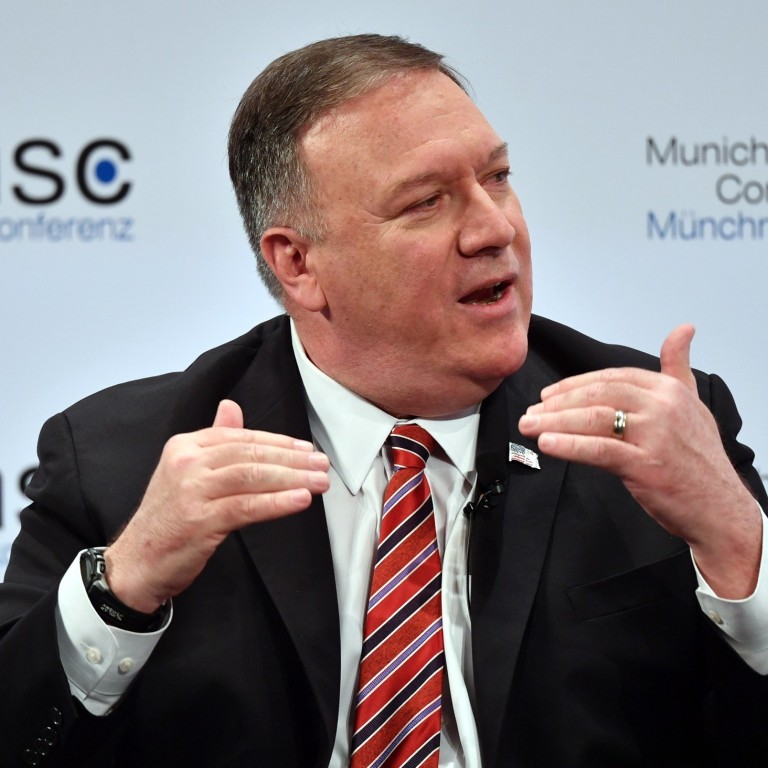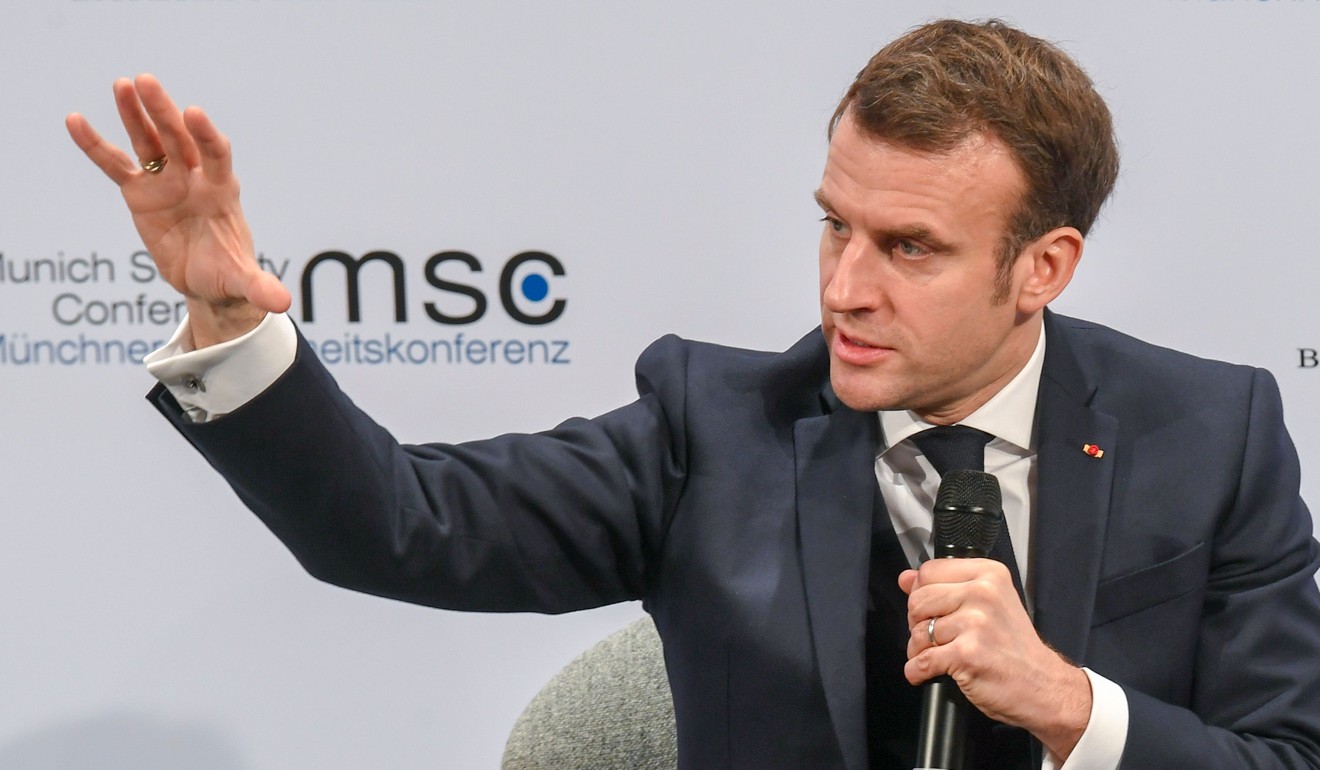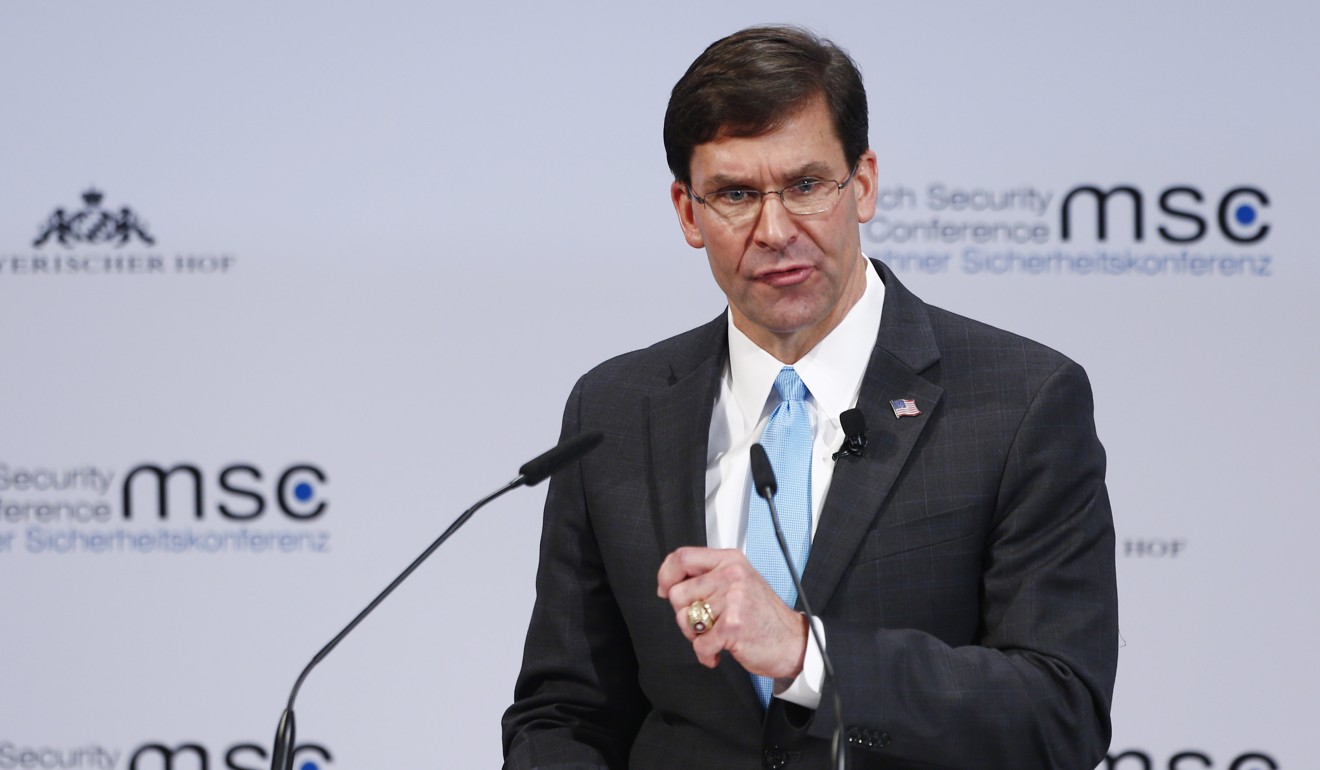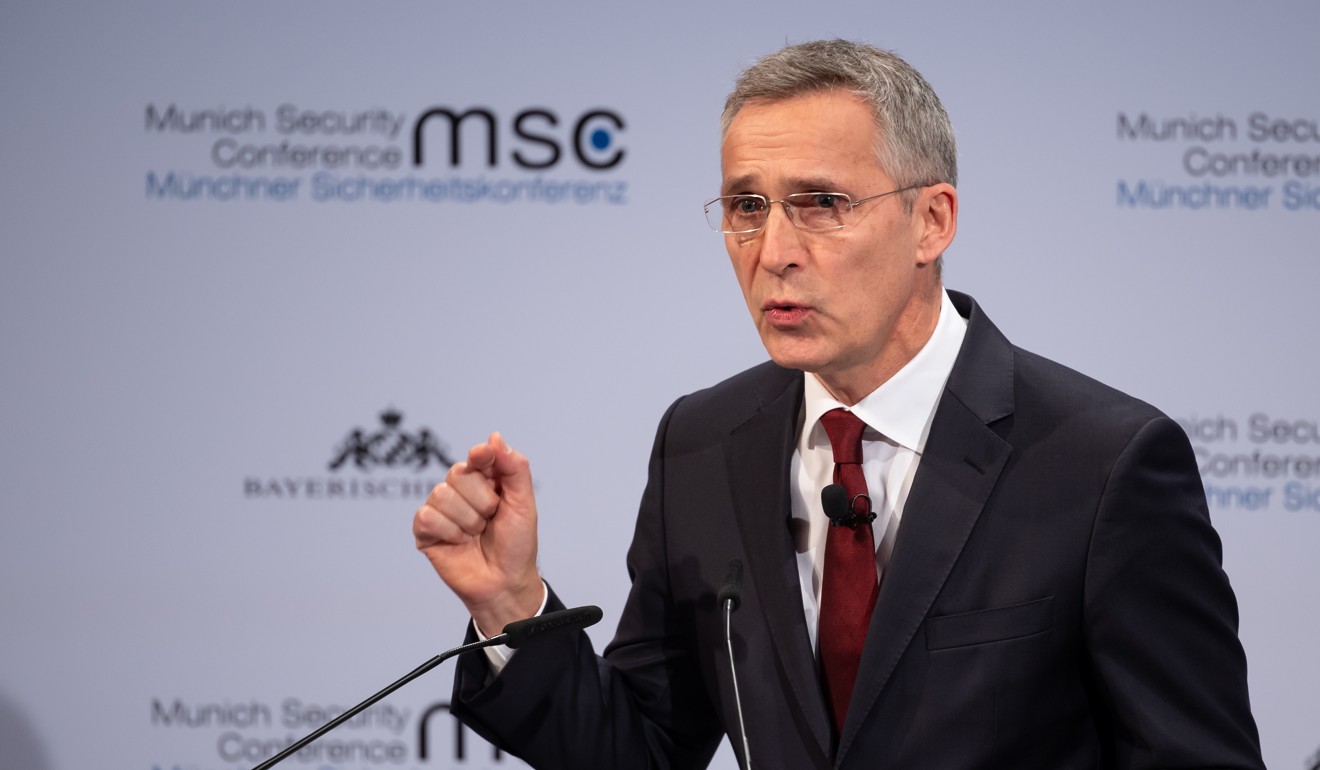
Mike Pompeo defends US role on global stage at Munich security meeting
- The US Secretary of State said pessimism over the US’ commitment to the international community was ‘grossly over-exaggerated’
- Pompeo said Russia, China and Iran were still ‘desiring empires’ and were destabilising the rules-based international system
United States Secretary of State Mike Pompeo on Saturday rejected European pessimism about Washington’s retreat from the global stage, saying the death of the transatlantic bond had been “grossly overexaggerated”.
“The West is winning and we’re winning together,” Pompeo told the Munich Security Conference.
But he was immediately contradicted by French President Emmanuel Macron, who warned of “a weakening of the West”.
US warns China about using Singapore air show as ‘platform for exploitation’
In his opening speech a day earlier, German President Frank-Walter Steinmeier suggested that the US rejected “even the idea of an international community” and was acting “at the expense of neighbours and partners”.
“Those statements don’t reflect reality,” Pompeo said.
“I’m happy to report that the death of the transatlantic alliance is grossly over-exaggerated,” he said, paraphrasing a famous Mark Twain quote.

Pompeo said Washington was playing a key role in keeping Europe safe by reinforcing Nato’s eastern flank on the border with Russia, as well as leading a multinational effort to defeat the Islamic State jihadist group.
“Is this an America that ‘rejects the international community’?” he asked.
“The free West has a brighter future than illiberal alternatives,” Pompeo added, urging allies to have “confidence” in the transatlantic bond.
He stressed the need to work together against threats posed by Russia’s territorial ambitions, China’s military buildup in the South China Sea and Iran’s “campaigns of terror” through proxy conflicts in the Middle East.
US partners buying arms from Russia, China could be hit with sanctions
Citing Russia’s 2014 annexation of Crimea, cyber threats in Iran and economic coercion by China, Pompeo said those countries were still “desiring empires” and destabilising the rules-based international system.
France’s Macron told the conference he was not surprised by Steinmeier’s speech and had liked it.
“I’m impatient for European solutions,” Macron said.
Macron said the West’s policy of defiance towards Russia in recent years had failed and, as nobody wanted to confront Moscow directly, the only option was to have a closer dialogue to resolve differences.
“I hear the defiance of all our partners, I’m not mad, but I know that being defiant and weak ... is not a policy, it’s a completely inefficient system,” Macron said, saying he saw none of his allies willing to confront Russia.
“There is a second choice, which is to be demanding and restart a strategic dialogue because today we talk less and less, conflicts multiply and we aren’t able to resolve them,” he added.

“It is essential that we as an international community wake up to the challenges presented by Chinese manipulation of the long-standing international rules-based order,” Esper said.
No sympathy for China as US, Europe agree to confront rising influence
“We could have a win-win strategy if we just abide by the international rules that have been set in place for decades ... that respect human rights, that respect sovereignty,” he said.
The comments by the US officials were dismissed by China’s State Councillor and Foreign Minister Wang Yi.
“All these accusations against China are lies, not based on facts,” Wang told the Munich Security Conference. “But if we replace the subject of the lie from China to America, maybe those lies become facts.”

Nato chief Jens Stoltenberg, who also took to the stage in Munich, joined Pompeo in voicing dismay at the gathering’s pessimistic tone.
“There is a competition out there in so many areas, with so many different actors, but simply lamenting that we have lost our way will not provide us with a way forward,” Stoltenberg told the audience.
“Europe and North America are indispensable partners – two sides to the same coin. together, we are half of the world’s military might and half of the world’s economic might.”
In a nod to concerns about European reliance on Russian natural gas, Pompeo also announced that the US would finance energy projects in eastern EU countries.
“The United States – through our International Development Finance Corporation, and with the support of the US Congress – intends to provide up to US$1 billion in financing to the Central and Eastern European countries of the Three Seas Initiative,” Pompeo told the conference. “Our aim is to galvanise private sector investment in their energy sectors.”
Pelosi joins Trump in Huawei threat warning in rare bipartisan moment
The Three Seas Initiative is a club of 12 eastern and central EU countries who have grown increasingly concerned about over the Russian giant in their backyard since Moscow’s annexation of Crimea from Ukraine in 2014.
At a Three Seas meeting in 2017, US President Donald Trump offered to supply the grouping with US liquefied natural gas so they would never be “hostage” to a single Russian supplier.
Washington’s offer comes amid fierce US opposition to Russia’s controversial Nord Stream 2 pipeline, set to double the country’s gas shipments to Germany.
Washington believes the pipeline will give Russia too much influence over security and economic issues in western Europe.


.png?itok=arIb17P0)